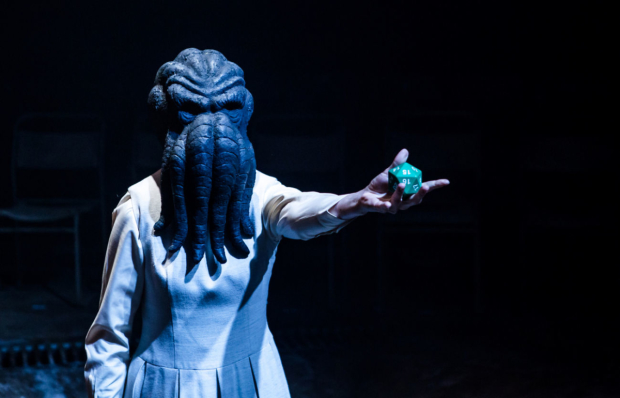Michael Coveney: Criticism is at the crossroads, but does the public care a hoot?

© Richard Davenport
One of the things wrong with theatre criticism at the moment is that too much of it is about theatre criticism itself. You can see why: the print media is in meltdown, professional prospects for young critics are dim, "everyone’s a critic" on the social media and the cacophonous roar on the internet is seriously out of proportion to the impact it makes with the public.
In a new book, Better Living Through Criticism, published in Britain this week and serialised in the Observer last Sunday, the estimable New York Times film critic A O Scott re-defined the task and indeed the urgency of good criticism to sort out the arguments from the roar, the points from the palaver and the public interest from the mass twittering of the blogosphere.
"The number of critics who have managed to last is vanishingly small" – the Observer extract doesn’t cite any examples, but I’d guess he’s referring to the likes of Edmund Wilson, Kenneth Tynan, Pauline Kael, Christopher Ricks, Robert Hughes, Andrew Porter and Clive James – but that is no reason to not keep trying: "It is the job of art to free our minds, and the task of criticism to figure out what to do with that freedom."
Critics strike a bargain with the public, not the art form, otherwise they are self-deluded footmen at the feast.
While the overall picture looks gloomy, there is an excitement about criticism readjusting to the new world and prerogatives Scott describes, but for the moment most online criticism exists in its own bubble. I was struck by Matt Trueman’s observation the other day that online criticism is free from any obligation to the general reader. Is it? If so, I don’t see the point of it. Critics addressing each other and their own art form (whose practitioners don’t give a fig about what any critic says) are critics wasting their time.
And then, on the same Sunday, while Scott was spread luxuriantly over three pages of the Observer, the Independent on Sunday closed down as a print newspaper with an article by Holly Williams about the playwright Alistair McDowall, author of Pomonaand next week’s X at the Royal Court (not to be confused with a sexually explicit Barry Reckord play of the same title at the Court some thirty years ago).
"Last year," said Holly, "there was one word on every in-the-know theatregoer’s lips: Pomona…[it] was feverishly championed by bloggers, critics and theatre-makers alike, with McDowall, still only 28, practically hailed as the future of British theatre…" Possibly McDowall will find a place in the pantheon, or even in the public’s consciousness, as Osborne, Pinter, Tom Stoppard, David Hare and, to a lesser extent, Caryl Churchill, have done. But there are no signs of that yet, and I don’t know about you, but I hate the sound of "in-the-know theatregoers" all agreeing with each other.
Critics strike a bargain with the public, not the art form, otherwise they are self-deluded footmen at the feast. The trick is to channel authority and experience into maximum readability. The great thing about criticism in print is that it fights for the reader’s attention on a particular page, within a particular publication. Where it appears is a statement of intent. The first FT arts pages were on page three, unadulterated with advertising of any kind; I was a very happy bunny for several years as a page three girl alongside the likes of Porter, Nicholas Kenyon, Clement Crisp and Nigel Andrews.
The challenge for online reviewing – and it’s certainly the intention at WhatsOnStage– is to break out of the dedicated, specialist function of the site to address the general theatre-going public beyond. There are signs this may be happening. But we’ve all got to fight a lot harder and bear in mind the other phenomenon in changing theatre-going habits: the big popular audiences for jukebox musical theatre and shows like The Bodyguard don’t read theatre criticism at all. The important thing is to continue writing as if they might.










